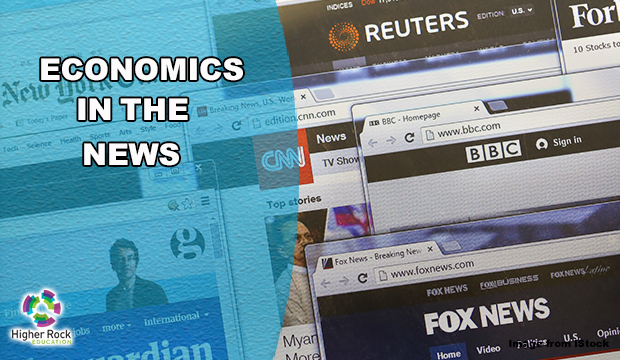
Economics in the News – July 24-30, 2023
Economics impacts our lives every day. Below are some of the top storylines from this past week related to economics.
o Are you frustrated with the cost of your home insurance? Between the double-digit premium increases, high deductibles, and new coverage limits, home insurers are insuring less for a higher cost. According to analysts, the reason is that they are trying to return to profitability after losing money in five of the last six years. Storms, natural disasters, inflation and supply-chain issues have led to increased claims.
Thirty-one states have had double-digit rate increases since the start of 2022 with Arizona, Texas, North Carolina, Oregon, Illinois and Utah having the largest increases. Beyond that, many insurers have cut coverage of wind and hail damage by increasing the deductible by one to two percent. Other companies are contracting services in areas vulnerable to natural disasters, such as Florida and Louisiana. [The Wall Street Journal]
o What would it be like to order in a fast-food drive-through by a chatbot? Wall Street Journal columnist Joanna Stern tested it out at restaurants across the country where the technology is being used. The fast-food industry has struggled with high labor shortages, turning to artificial intelligence for help.
Chains such as White Castle, Hardee’s, Del Taco, and Checkers are employing chatbots to greet customers at the drive-through and take orders. In Stern’s experience where she ordered food in 30 different fast-food drive-throughs, the bot is programmed to understand a limited selection of data – including the restaurant’s menu and brand-specific information. Employees listen in on headsets to ensure accuracy and to assist with any specific allergen needs. [The Wall Street Journal]
o European cities are looking back on history for ways to stay out of the sweltering summer heat. Many European destinations have limited air conditioning, but building techniques such as courtyards, heavy shutters, reflective painting and white-stone facades help to keep homes cool naturally.
Traditional houses in Mediterranean countries like Greece, Italy and Spain are built in such a way where breezes run through them. In recent decades, European builders have adopted many techniques used in America for newer buildings, trapping heat inside. With the continent experiencing more intense heat and countless homes not equipped with air conditioning, forcing governments to step in to impose measures that protect citizens. Cooling experts say that reliance on air conditioning is not a sustainable solution, because cooling devices account for as much as 10 percent of all global greenhouse gas emissions – twice the amount coming from aviation and sea travel combined. [The New York Times]
o Since the Ukraine War began, European countries have moved quickly to reduce their dependence on inexpensive Russian gas. Countries such as Germany, Bulgaria, Poland, the Czech Republic, and Italy have been steadily decreasing their Russian imports and expect to halt Russian natural gas imports by the end of the year.
And then, there is Austria. Austria received 80 percent of its gas from Russia before the invasion and still receives more than half its total. Austria was the first Western Europe country to sign a gas contract with the Soviet Union in 1968 and has been reliant on Russian gas since that time. The country has pledged to end imports of Russian natural gas by 2027, but critics suggest that Austria’s government is not moving quick enough and funding Russia’s war. Austria remains officially neutral, which has been written into its constitution since 1955 and is not a member of American and European military alliance, NATO. [The New York Times]
o Mania for “Barbie” and “Oppenheimer” continued into the second weekend since the two movies made their much-anticipated debuts. Theaters took in $93 million in its second weekend for movie lovers to watch “Barbie” on the big screen, while “Oppenheimer” brought in $46.2 million.
The two movies combined have surpassed $1 billion in worldwide ticket sales. “Barbie” has made at least $20 million for every day it has played in theaters, which has been the best first 11 days in theaters of any Warner Bros. release ever. Universal Pictures’ “Oppenheimer” has surpassed $174.1 million in US sales and $72.4 million in international cinemas. The sensation of “Barbie” and “Oppenheimer” has provided a boost for a movie industry that has been slow to recover post-pandemic. [Associated Press]